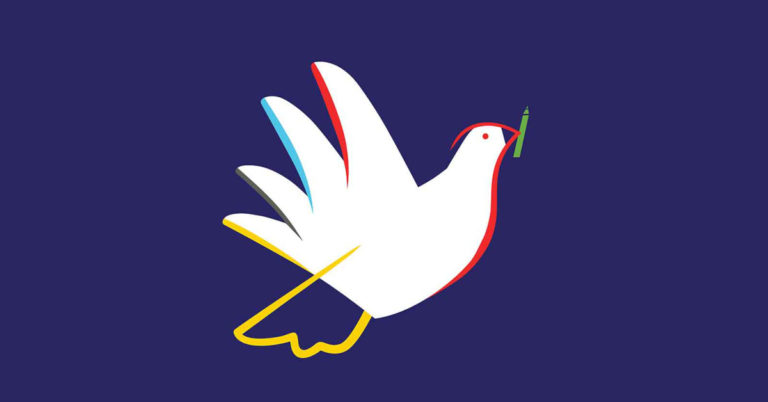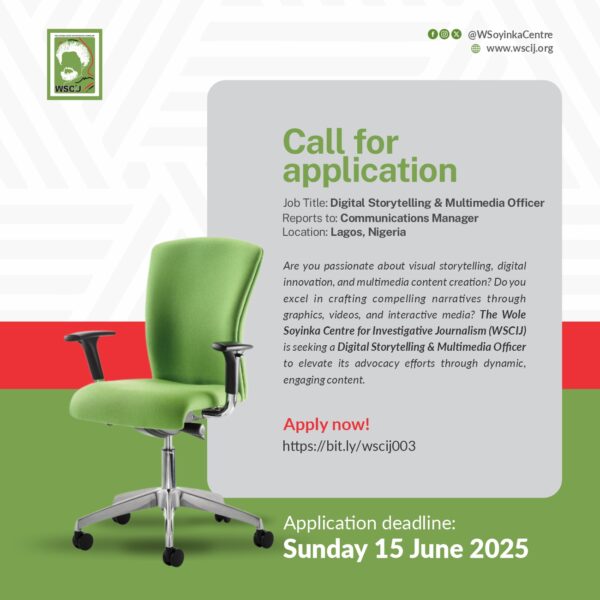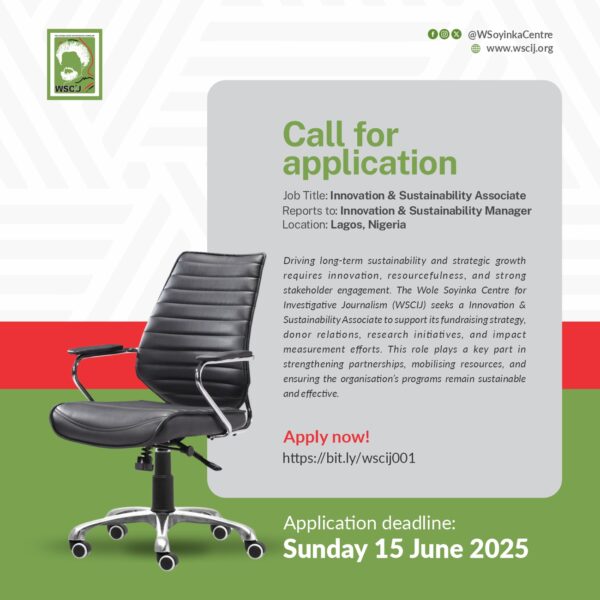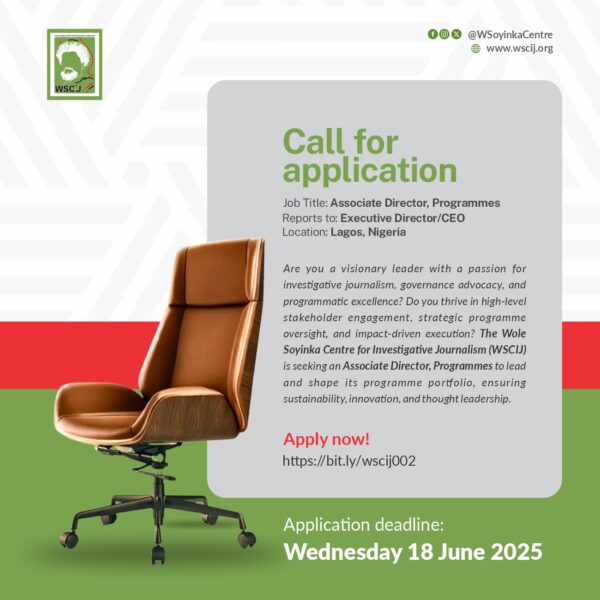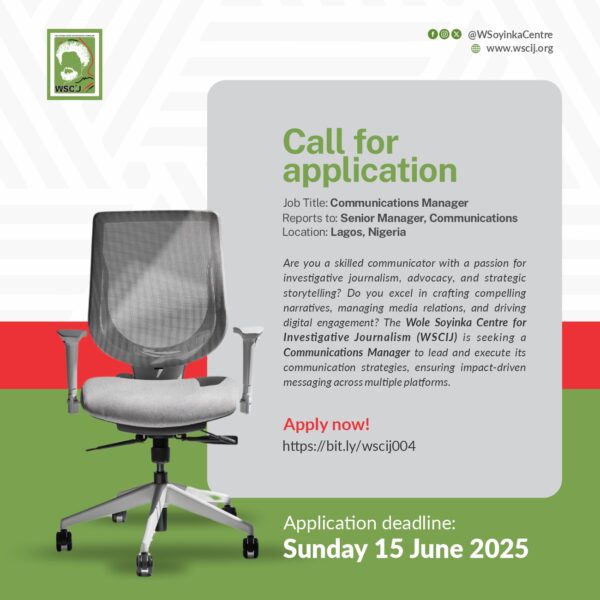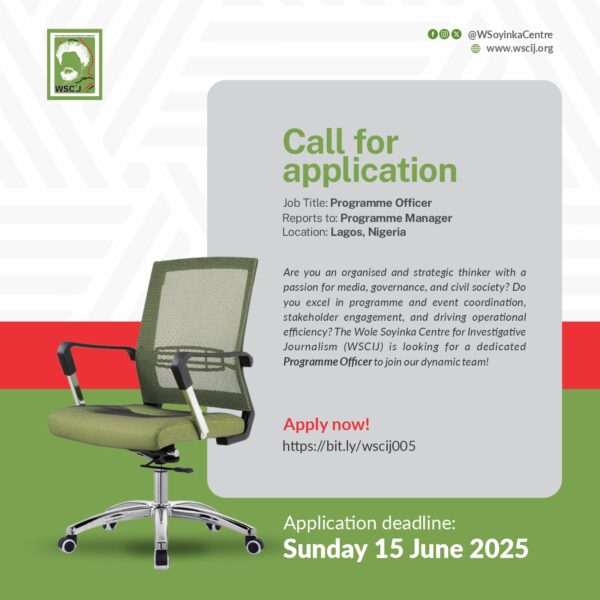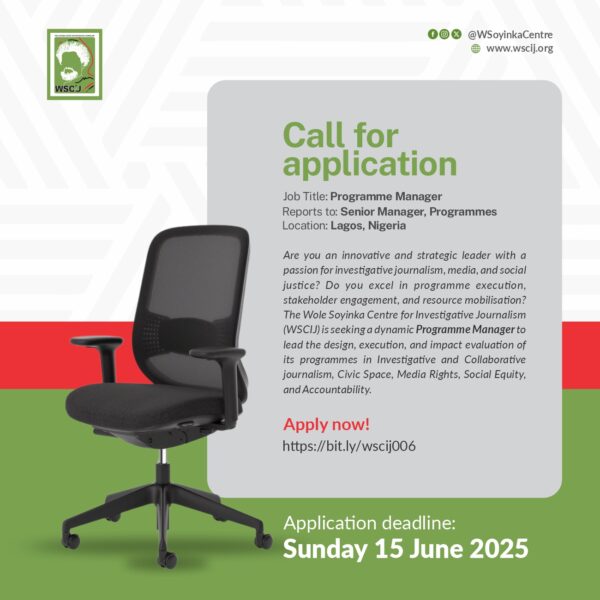Vigilance, collaboration, government support, and legal action are important ingredients for press freedom. These were the thoughts of Motunrayo Alaka, ED/CEO Wole Soyinka Centre for Investigative Journalism (WSCIJ); Stella Iyaji, Managing Editor of Daily Trust Newspaper; Adeolu Adekola, Project Manager, Centre for Investigative Journalism (CIJ) and other contributors during the WSCIJ Twitter Spaces event, tagged, “Shaping the future of press freedom in Africa”, to mark the 2023 World Press Freedom Day on 3rd May.
At the event moderated by moderated by Wemimo Adewuni, Senior Programme Officer, WSCIJ, Motunrayo Alaka, described freedom of expression from which freedom of the press emanates, as a driver for all other human rights. For her, freedom of expression is the foundation of other freedoms- access to information, the right to know, the right to life, the right to education, the right to male-female equality, and many other rights. She alluded to the World Press Freedom Index which ranked Nigeria one hundred and twenty-nine (129) out of 180 and categorised it as one of the most problematic countries for press freedom in the world.
Alaka lamented the Strategic Lawsuits Against Public Participation (SLAPP) strategy by political office holders, government agencies and the private sector to deliberately sue journalists and media houses in a bid to frustrate freedom of the press with the long judicial processes. Alaka cited cases where out of concern about the slow judicial system, media houses decline legal assistance offered by lawyers when their rights have been infringed on. She called on the older and stronger media organisations to test available legal provisions to defend press freedom. She also advised journalists to publish stories about their frustration to access information and attacks on press freedom rather than the usual – ‘all efforts to reach the government proved abortive.’
With a focus on President Goodluck Jonathan and President Muhammadu Buhari’s administrations, Stella Iyaji lamented that despite over 20 years of uninterrupted democracy, successive Nigerian governments have clamped down on media organisations with numerous cases of harassment, intimidation, and arrests of journalists. Although requisite legal provisions guaranteeing press freedom and freedom of expression exist alongside the Freedom of Information Act which empowers the media to access any information, enforcement of these laws are lacking at all levels of government, she said.
In proffering solutions, Iyaji hoped the incoming administration would see the press as a partner in nation-building and not a threat. She urged the National Assembly to enact laws that will empower the media to carry out its responsibilities of holding the government to account.
Adeolu Adekola, Project Manager, Centre for Investigative Journalism (CIJ), in his contribution, said the price of freedom is eternal vigilance. According to him, it was crucial for the media to speak up and set the agenda. Citing his experiences while working with other journalists across Africa, he noted that the issue of press freedom was also affecting media support organisations as it was becoming harder to train journalists across Africa due to lack of access. Following the democratisation of the media sector and the increase in citizens journalism, he urged media organisations curb the spread of fake news and misinformation.
Also, Midat Joseph, a former National Assistant Secretary of the Nigerian Union of Journalists (NUJ), opined that many media organisations were established for profit-making and as such, stories affecting their interests or sources of income were often frowned upon by media owners. The Kaduna-based urged WSCIJ to empower and collaborate with more small independent media organisations to hold the government to account.
As the global community marks the 30th anniversary of the World Press Freedom Day, Motunrayo Alaka reiterated that stakeholders must understand that a shackled press leads to a shackled democracy, shackled development, and limitations of other significant elements necessary for national development. Hence, the conversation for a free press must continue beyond this year’s World Press Freedom Day.
Signed,
WSCIJ

